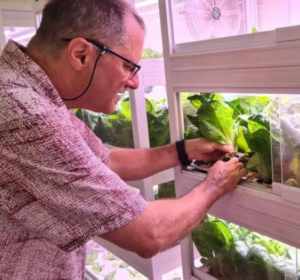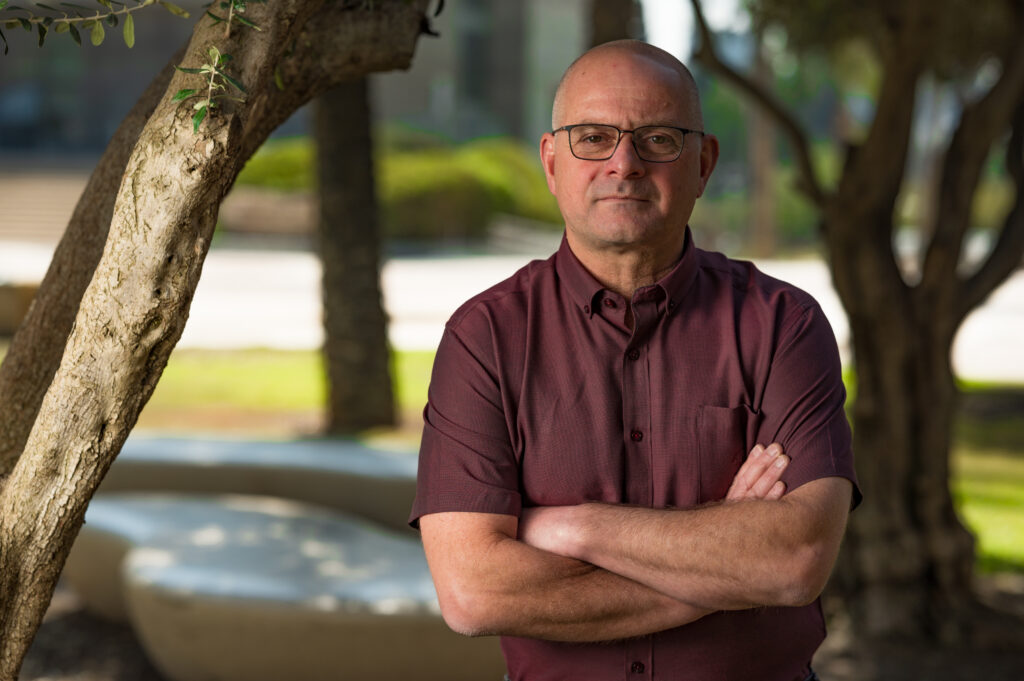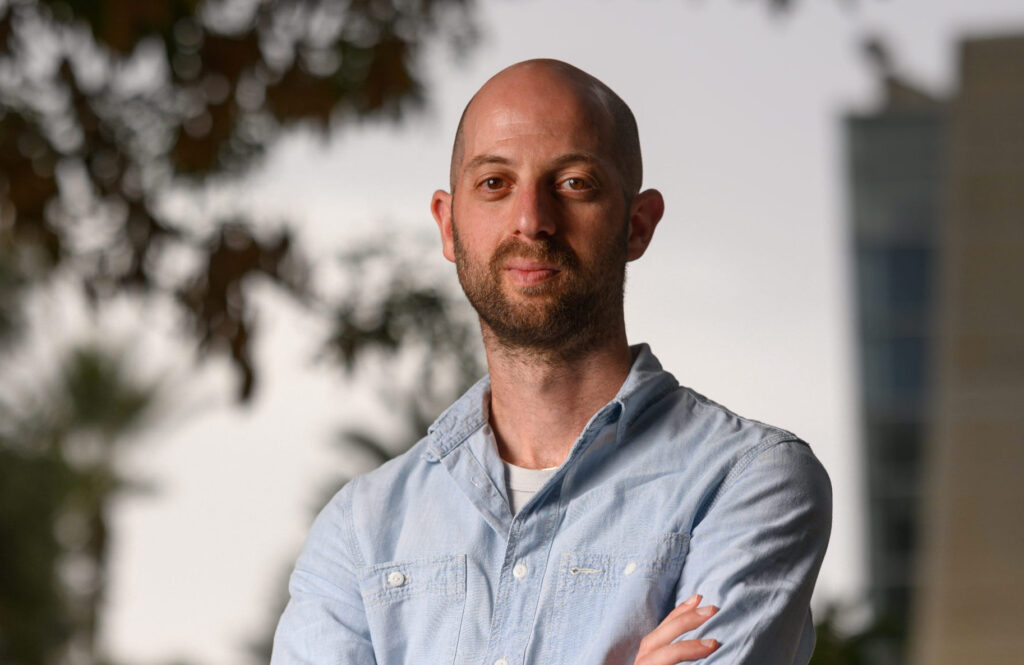
BGU Scientists Invent System to Promote Food Security
BGU Scientists Invent System to Promote Food Security
September 13, 2024
Natural Sciences, Sustainability & Climate Change

Prof. Amit Gross, The Department of Environmental Hydrology & Microbiology (EHM) at BGU checking on the lettuce the scientists are growing with the help of fish.
Haaretz – Ben-Gurion University of the Negev (BGU) scientists have developed an advanced aquaponics system, where the vegetables we eat will grow in the waste of fish we will also eat – and it produces energy.
Climate change is stressing our food sources. Food scares are becoming legion. Salmonella in salad greens. Staple crops and luxuries like cocoa and coffee are imperiled by climate mayhem. The megafauna has mostly gone extinct and the herbivores we breed to replace them on our plates are numerous and gassy enough to change the climate even more. The oceans and lakes are massively overfished but fish farms pose environmental and humanitarian concerns.
Enter the scientists at BGU with an advanced aquaponics system to grow fish and vegetables together more efficiently in a closed loop system.
Prof. Amit Gross, BGU Professor in the Department of Environmental Hydrology & Microbiology (EHM), Dr. Ze Zhu and Dr. Uri Yogev, both BGU researchers, and Prof. Karel Keesman from Wageningen University in the Netherlands, published a paper in the journal Resources, Conservation and Recycling.
Hydroponics is growing veg in water, no soil. Aquaculture means growing fish, no veg, no soil. Aquaponics combines aquaculture and hydroponics to grow veg hydroponically together with fish. It is with aquaponics (fish + veg) that we engage here. Truth is aquaponics has been around for some 60 years yet remains neglected, Prof. Gross says.
Their new system is unique in being almost completely closed and not only exploits fish feces and vegetable waste, extracting nutrients from them; crucially it also produces energy that can be harvested, the team explains.
The ultimate goal is to improve food security. “Feeding the more than 8 billion people on the planet while reducing greenhouse gas emissions will require innovative technologies. Those that combine two functions in one are obviously preferable,” Prof. Gross says. “Fish are a sustainable high-quality source of protein with a far smaller carbon footprint than most other sources. Combining fish growth with vegetable production and preventing waste is a win-win-win.”



